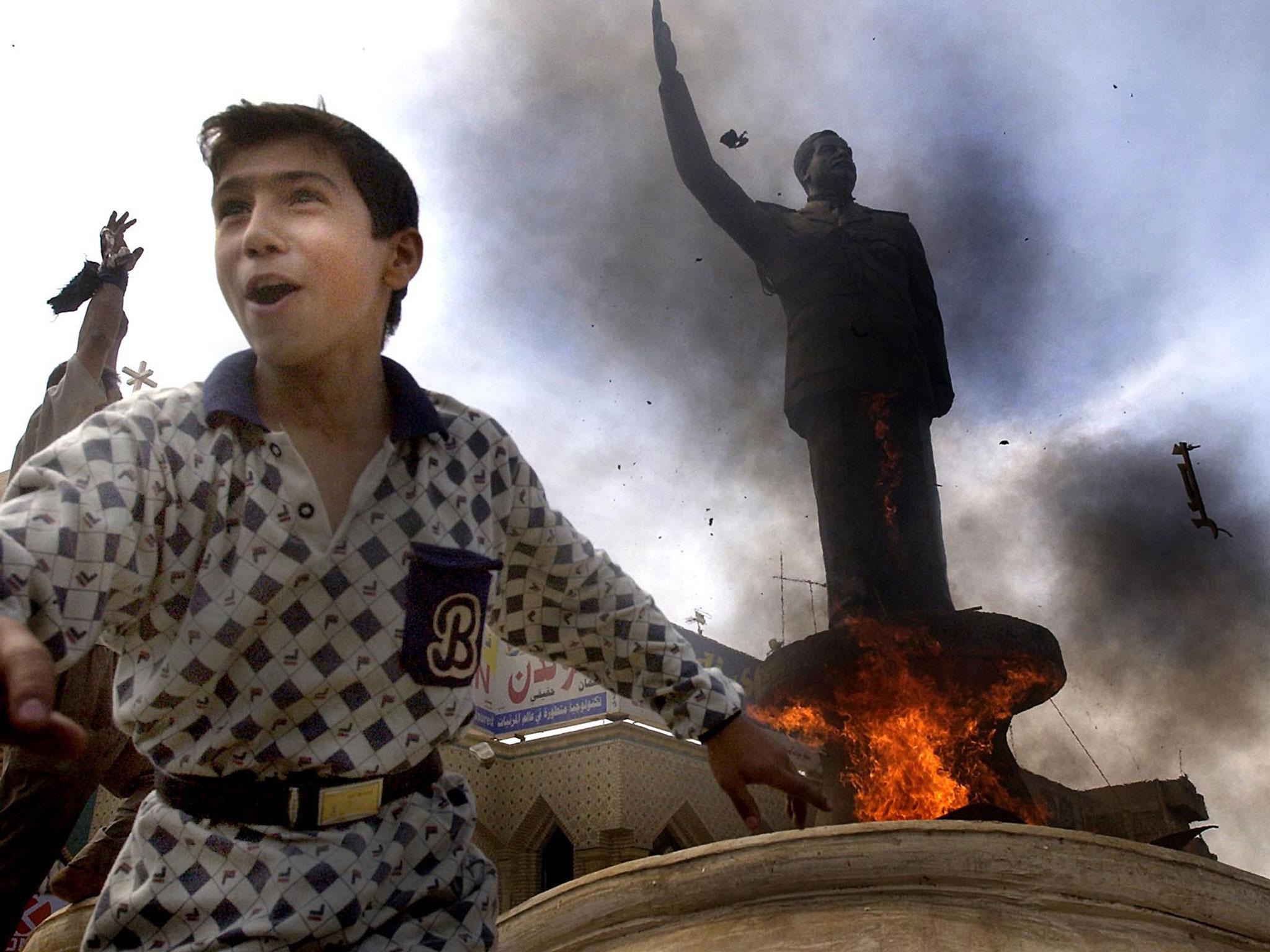US government spent over $500m on fake Al-Qaeda propaganda videos that tracked location of viewers
The Pentagon hired a UK-based PR firm to produce and disemminate videos during the Iraq War

Your support helps us to tell the story
From reproductive rights to climate change to Big Tech, The Independent is on the ground when the story is developing. Whether it's investigating the financials of Elon Musk's pro-Trump PAC or producing our latest documentary, 'The A Word', which shines a light on the American women fighting for reproductive rights, we know how important it is to parse out the facts from the messaging.
At such a critical moment in US history, we need reporters on the ground. Your donation allows us to keep sending journalists to speak to both sides of the story.
The Independent is trusted by Americans across the entire political spectrum. And unlike many other quality news outlets, we choose not to lock Americans out of our reporting and analysis with paywalls. We believe quality journalism should be available to everyone, paid for by those who can afford it.
Your support makes all the difference.A former contractor for a UK-based public relations firm says that the Pentagon paid more than half a billion dollars for the production and dissemination of fake Al-Qaeda videos that portrayed the insurgent group in a negative light.
The Bureau of Investigative Journalism reported that the PR firm, Bell Pottinger, worked alongside top US military officials at Camp Victory in Baghdad at the height of the Iraq War. The agency was tasked with crafting TV segments in the style of unbiased Arabic news reports, videos of Al-Qaeda bombings that appeared to be filmed by insurgents, and anti-insurgent commercials – and those who watched the videos could be tracked by US forces.
The report of Bell Pottinger’s involvement in the video hearkens back to more than 10 years ago, when the Washington-based PR firm Lincoln Group was revealed to have produced print news stories and placed them in Iraqi newspapers. According to the Los Angeles Times, who obtained the 2005 documents, the stories were intended to tout the US-led efforts in Iraq and denounce insurgent groups.
Bell Pottinger was first tasked by the interim Iraqi government in 2004 to promote democratic elections. They received $540m between May 2007 and December 2011, but could have earned as much as $120m from the US in 2006.
Lord Tim Bell, a former Bell Pottinger chairman, confirmed the existence of the contract with the Sunday Times. The Pentagon also confirmed that the agency was contracted under the Information Operations Task Force, but insisted that all material distributed was “truthful”.
However, former video editor Martin Wells, who worked on the IOTF contract with Bell Pottinger, said they were given very specific instructions on how to produce the fake Al-Qaeda propaganda films.
“We need to make this style of video and we’ve got to use Al-Qaeda’s footage,” Mr Wells told the Bureau, recalling the instructions he received. “We need it to be 10 minutes long, and it needs to be in this file format, and we need to encode it in this manner.”
According to Mr Wells’ account, US Marines would then take CDs containing the videos while on patrol, then plant them at sites during raids.
“If they’re raiding a house and they’re going to make a mess of it looking for stuff anyway, they’d just drop an odd CD there,” he said.
The CDs were encoded to open the videos on RealPlayer software that connects to the Internet when it runs. It would issue an IP address that could then be tracked by US intelligence.
“If one if looked at in the middle of Baghdad … you know there’s a hit there,” Mr Wells said. “If one, 48 hours or a week later shows up in another part of the world, then that’s the more interesting one, and that’s what they’re looking for more, because that gives you a trail.”
Mr Wells said the CDs were viewed in countries like Iran, Syria, and the United States.
The programmes produced by Bell Pottinger would move up the chain of command, often requiring the signatures of high level generals, including Gen David Petraeus, and could sometimes go as high up as the White House for approval.
Lord Bell maintains that Bell Pottinger’s work in Iraq was beneficial to the overall effort.
“We did a lot to help resolve the situation,” he said. “Not enough. We did not stop the mess which emerged, but it was part of the American propaganda machinery.”
But Mr Wells is not quite as convinced.
“I mean if you look at the situation now, it wouldn’t appear to have worked,” he said. “But at the time, who knows, if it saved one life it [was] a good thing to do."